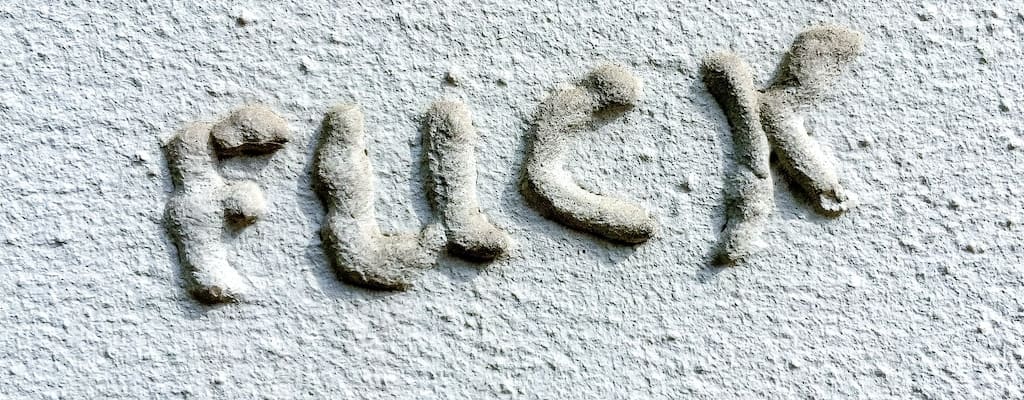have a laugh: Idiom Meaning and Origin
What does ‘have a laugh’ mean?
The idiom "have a laugh" means to find something amusing or entertaining and to enjoy a good laugh or joke.

Idiom Explorer
The idiom "make fun of" means to mock or ridicule someone or something in a lighthearted or derogatory manner.
The idiom *laugh up one's sleeve* means to secretly find amusement or satisfaction in a situation without showing it openly. It implies a hidden or sly sense of humor.
The idiom "laugh out of court" means to ridicule or dismiss something as ridiculous or absurd, especially in a legal context. It implies that the argument or claim is so lacking in credibility that it would not be taken seriously in a court of law.
The idiom "laugh one's head off" means to laugh uncontrollably and excessively.
The idiom "laugh in one's sleeve" means to secretly or quietly find something amusing or funny without showing it openly.
The idiom "laughing stock" refers to a person or thing that is ridiculed and made fun of by others, causing amusement and laughter. It carries a negative connotation and is often associated with someone who is seen as absurd, ridiculous, or deserving of mockery.
The idiom "laugh a minute" refers to someone or something that is consistently funny or amusing, providing frequent moments of laughter.
The idiom "laugh all the way to the bank" means to feel a sense of satisfaction or joy when you have made a lot of money or have been successful in financial matters.
The idiomatic phrase "in jest" means to say or do something as a joke or in a lighthearted manner, not intended to be taken seriously.
The idiom "have a good time" means to enjoy oneself or to have an enjoyable experience.
The Hidden Humor: Insights into "Have a Laugh"
The idiom "have a laugh" is commonly used in spoken English and is derived from the literal meaning of the words "have" and "laugh." It means to engage in an enjoyable or humorous activity in a lighthearted manner. It suggests a sense of amusement, fun, and entertainment. The idiom is typically used to encourage or invite others to join in on a humorous or playful situation, indicating a desire for shared enjoyment.
The origins of the idiom "have a laugh" are difficult to trace definitively, as it belongs to the broader category of idiomatic expressions that have naturally evolved within the English language. Idioms often arise organically from cultural and social contexts, and their specific origins can be challenging to pinpoint.
Idioms, including "have a laugh," play a crucial role in language and communication. They add color, depth, and nuance to conversations, conveying emotions, attitudes, or concepts more effectively than literal language. Understanding idioms is essential for non-native speakers to achieve fluency and comprehension in a language.
The idiom "have a laugh" is prevalent in everyday conversation, particularly in informal settings. It is frequently used among friends, family members, and colleagues to create a jovial atmosphere and foster camaraderie. The idiom can be employed during social gatherings, parties, or leisure activities, where humor and enjoyment are emphasized.
Due to its popularity and widespread use, "have a laugh" has become deeply ingrained in modern English idiomatic expressions. It is often used interchangeably with similar idioms like "have a good time," "have a blast," or "have fun." These phrases share a common objective of expressing the desire for an enjoyable experience or engaging in pleasurable activities.
The idiom "have a laugh" is related to the idiom "have a good time." Both idioms express the desire for enjoyable experiences and emphasize the importance of finding amusement and entertainment in various situations. Whether it's attending a comedy show or simply spending time with loved ones, the goal is to create positive memories and moments of laughter.
Similarly, the idiom "have a laugh" can be related to the idiom "make fun of." While "have a laugh" focuses on engaging in enjoyable activities, "make fun of" refers to the act of teasing or mocking someone or something in a playful manner. Both idioms involve humor, but "make fun of" has a slightly different connotation, as it implies a lighter form of amusement that is directed towards a specific target.
The idiom "have a laugh" can be associated with the idiom "have a ball." "Have a ball" means to have a great time or enjoy oneself to the fullest. It implies a carefree attitude and embodies the idea of fully immersing oneself in the moment and embracing the joy and excitement that comes with it. "Have a laugh" shares this same sentiment of lightheartedness and the pursuit of fun and amusement.
Lastly, the idiom "have a laugh" can be related to the idiom "laugh one's head off." Both idioms revolve around the act of laughing, emphasizing the extent to which something is hilarious or amusing. When someone "laughs their head off," it means they are laughing excessively or uncontrollably. The idiom "have a laugh" embodies this idea of finding something so funny or enjoyable that it brings about an outpouring of laughter, creating an atmosphere of pure joy and mirth.
The idiom "have a laugh" is a common expression that signifies engaging in enjoyable or humorous activities in a lighthearted manner. It is deeply ingrained in modern English idiomatic expressions and is often used to encourage shared enjoyment and foster a sense of camaraderie. The related idioms, such as "have a good time," "make fun of," "have a ball," and "laugh one's head off," all revolve around the themes of amusement, laughter, and enjoyment. They serve to enhance communication and add depth and nuance to conversations, allowing for a more engaging and vibrant exchange of ideas and emotions.
Example usage
Examples of how the idiom *have a laugh* can be used in a sentence:
- I met up with my friends last night and we really had a laugh.
- After a long day at work, watching a funny movie can help you have a laugh and relax.
- Even in difficult times, it's important to find reasons to have a laugh and keep a positive attitude.
More "Humor" idioms



